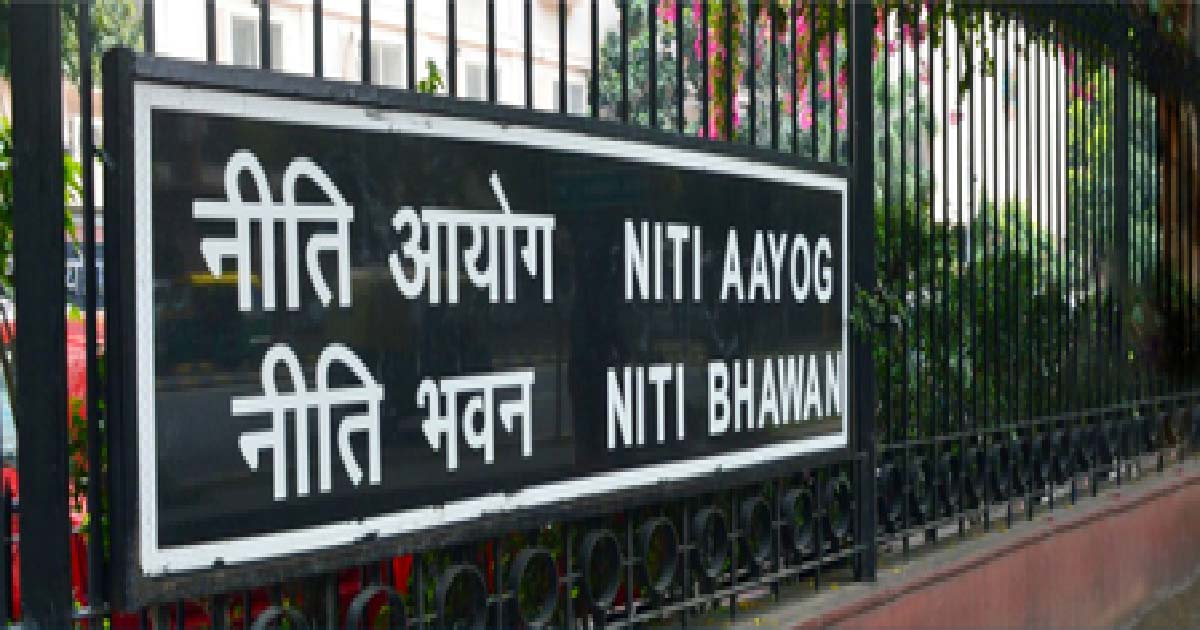Business
itel unveils premium affordable smartphone Vision 2S with big display, 5000mAh battery

After the huge success of its premium-affordable Vision series in India, India’s most trusted smartphone brand itel on Tuesday launched an innovative next-generation smartphone — Vision 2S — at an affordable price of Rs 6,999.
With this launch, itel reinstates its commitment towards providing a seamless and superior smartphone experience at a highly affordable quotient to cater to the aspirations of new-age consumers.
“Today in the new world order, usage of a smartphone device has increased multi-fold with consumers spending more time on their mobile devices,” Arijeet Talapatra, CEO, TRANSSION India, said in a statement.
“Keeping this trend in mind, with the premium design and best-in-class features, Vision 2S comes with a power-packed battery to empower consumers with seamless smartphone experience,” Talapatra added.
Positioned as ‘Live Life Big Size’, Vision 2S is high on the battery capacity of 5000mAh and boasts a premium bigger Immersive 6.5-inch HD+ IPS Waterdrop display.
The smartphone is all set to be a game-changer with the premium design and technologically advanced features such as an AI-enabled vision camera, face unlock and fingerprint sensor for security, latest Android OS, fast processor, etc.
The smartphone also comes with an exclusive VIP offer where consumers can avail of free one-time screen replacement of a broken screen within 100 days of purchase without paying any service charge.
“We are confident that Vision 2S will be a great success with better capabilities and trendy features will help customers meet their digital needs whether it is for studying, binge-watching or entertainment,” Talapatra said.
“The evolutionary upgrade of Vision 2S continues our legacy of democratizing technology for the masses and enriching customer’s smartphone experience at an affordable price point,” he added.
Fulfilling the aspirations of the millennials of tier 3 and below markets, itel Vision 2S comes loaded with premium features that will provide a magical experience to the consumers. The smartphone is powered by a massive 5000mAh battery to provide users with 24 days standby and 25 hours of talk time.
The new smartphone is clad in 6.5-inch HD+ Waterdrop with in-cell technology and a 2.5D curved fully laminated display. It is topped with a screen ratio of up to 90 per cent that will make the picture both wider and three-dimensional and an aspect ratio of 20:9.
It is further adorned with 1600*720 pixels resolution for immersive and brighter video viewing.
The upgraded AI Power Master offers intelligent and automatic power management that helps to save battery by automatically turning on power-saving mode, sleep mode, application power management, application activation, AI Screen Light management, and power to provide maximum output.
The smartphone on the rear packs a dual AI camera with an 8MP primary sensor It sports a 5MP camera on the front for selfies with AI Beauty Mode for ensuring bright and clear selfies, even in low light areas making the picture experience worth capturing.
Running on the latest Android 11 (Go Edition) operating system, Vision 2S is powered with a 1.6 GHz Octa-core processor for seamless multitasking functionality.
In terms of memory configurations, the phone comes with 2GB RAM and 32GB internal storage. The phone also comes with dual security features like fast face unlock and a multi-feature fingerprint sensor for easy unlock.
The device is available in three gradient tones such as Gradation Purple, Gradation Blue, and Deep Blue.
Business
India-EU FTA: Brussels delegation in New Delhi next week to achieve ‘constructive conclusion’

New Delhi, Oct 29: To advance the ongoing free trade agreement (FTA) negotiations, the EU technical team, led by Director General for Trade Sabine Weyand, will visit India next week with the objective of achieving a “constructive conclusion based on the potential solutions identified over the past two days”, an official statement said on Wednesday.
Union Commerce and Industry Minister, Piyush Goyal, visited Brussels from October 26-28 and had productive and meaningful engagements with Maros Sefcovic, European Commissioner for Trade and Economic Security and his team on outstanding issues related to the ongoing India-EU FTA negotiations.
“Both sides reaffirmed their shared commitment to conclude the India-EU FTA by the end of 2025, following the clear direction from Prime Minister Shri Narendra Modi and President of the European Commission Ursula von der Leyen during the College of Commissioners’ visit to New Delhi in February 2025,” according to the official statement.
The engagement focused on achieving a mutually beneficial, balanced and equitable trade agreement, reflecting the depth of political trust and the strategic ties between India and the European Union, and at the same time respecting each other’s sensitivities and priorities.
The statement further said that India recognises the importance of ensuring that the FTA remains balanced in addressing both tariff and non-tariff barriers and creating transparent and predictable regulatory frameworks that accelerate trade for both partners in the coming years.
There was intensive engagement to explore possible landing zones on the outstanding issues.
There was also a good discussion on India’s concerns on Non-Tariff Measures and the new EU regulations. During the negotiations, Goyal emphasised the need for preferential treatment for India’s key asks, particularly those with respect to labour-intensive sectors.
Both sides agreed to work closely to finalise the non-sensitive industrial tariff lines. They also agreed that issues related to Steel, Auto, CBAM, and other EU regulations still require further discussion, as these issues have higher sensitivities.
“India looks forward to working closely with the European Union to transform this vision into reality through shared innovation, balanced, equitable, and meaningful trade, and a collective commitment to peace and prosperity,” the statement noted.
Business
Panvel’s Koralwadi Tribals Announce Indefinite Hunger Strike Over Incomplete Road And Water Projects After Being Neglected For Years

Frustrated after years of administrative apathy, tribal residents of Koralwadi in Apta Group Gram Panchayat, Panvel taluka, have announced an indefinite hunger strike outside the Sub-Divisional Officer (SDO) office in Panvel, beginning Wednesday, October 29. The protest aims to demand accountability for substandard road construction and the incomplete Jal Jeevan Mission project.
“Despite being just 15 kilometres from Navi Mumbai, we live as if we are forgotten by the system. We still don’t have a proper road or clean drinking water,” said Gurudas Waghe, a resident of Koralwadi.
Supported by Gram Sanvardhan Samajik Sanstha and guided by social activist Santosh Thakur, villagers have long campaigned for basic infrastructure through rallies, petitions, and previous hunger strikes — all in vain.
After sustained protests, the government sanctioned two major projects — a drinking water supply scheme under Jal Jeevan Mission three years ago and a road connecting NH-17 (Taregav) to Koralwadi two years ago. However, locals allege both projects remain incomplete.
“The contractor completed the roadwork in April, and by May before the rains it was washed away. That’s how poor the construction was,” said one villager, accusing the Public Works Department (PWD) of gross negligence and misuse of funds.
Thakur demanded a vigilance inquiry into the project, alleging that officials are protecting contractors instead of taking corrective action.
Villagers also accused authorities of deliberately stalling the Jal Jeevan Mission scheme. “For three years, they’ve been giving false excuses. We are still waiting for a drop of that promised water,” said another resident.
Under the Katkari Upliftment Programme, several tribal families applied for ration cards and official documents two years ago. However, most still haven’t received them due to alleged negligence by the supply department. “We’ve visited government offices multiple times, but officials keep pushing us away,” villagers complained.
Announcing the protest, Santosh Thakur said, “This time, we will not back down. Until action is taken against negligent engineers and pending works are completed, our hunger strike will continue indefinitely.”
Business
India’s services-led growth becoming more balanced, inclusive: NITI Aayog report

New Delhi, Oct 28: The services-led growth in India’s economy is becoming more regionally balanced as states with lower initial shares in services are catching up with more advanced ones, according to a NITI Aayog report released on Tuesday.
“There is clear evidence that structurally lagging States are beginning to catch up with advanced ones. This emerging pattern of convergence suggests that India’s services-led transformation is gradually becoming more broad-based and spatially inclusive,” the report states.
The services sector has become the cornerstone of India’s economic growth, contributing nearly 55 per cent of national GVA (Gross Value Added) in 2024-25.
To guide policy, the report introduces a quadrant-based framework that classifies 15 major service sub-sectors into four categories-Engines of Growth, Emerging Stars, Mature Giants, and Struggling Segments-to support differentiated strategies across States.
The report recommends prioritising digital infrastructure, logistics, innovation, finance, and skilling to accelerate diversification and competitiveness at the sectoral level.
It also recommends that at the state level there is a need for developing tailored service strategies based on local strengths, improving institutional capacity, integrating services with industrial ecosystems, and scaling up urban and regional service clusters.
Together, these findings offer a forward-looking policy road map for positioning the services sector as a key growth engine across India, reinforcing its central role in the Viksit Bharat @2047 vision.
A companion report titled India’s Services Sector: Insights from Employment Trends and State-Level Dynamics, focusses on employment within the services sector, drawing on data from the NSS (2011-12) and PLFS (2017-18 to 2023-24).
It offers a long-run and multi-dimensional view of India’s services workforce across sub-sectors, gender, regions, education, and occupations. The report goes beyond aggregate trends to reveal the sector’s dual character: modern, high-productivity segments that are globally competitive yet limited in employment intensity, and traditional segments that absorb large numbers of workers but remain predominantly informal and low-paying.
By linking historical and contemporary data, it situates these patterns within a broader framework of structural transformation, offering an integrated understanding of the opportunities and divides that shape India’s services-led employment transition.
Findings show that while services remain the mainstay of India’s employment growth and post-pandemic recovery, challenges persist. Employment generation is uneven across sub-sectors, informality remains widespread, and job quality continues to lag behind output growth. Gender gaps, rural-urban divides, and regional disparities underline the need for an employment strategy that integrates formalisation, inclusion, and productivity enhancement at its core.
To bridge these gaps, the report outlines a four-part policy road map focussing on formalisation and social protection for gig, self-employed, and MSME workers; targeted skilling and digital access to expand opportunities for women and rural youth; investment in emerging and green economy skills; and balanced regional development through service hubs in Tier-2 and Tier-3 cities.
By positioning the services sector as a purposeful driver of productive, high-quality, and inclusive jobs, the report underscores its centrality to India’s employment transition and its pivotal role in realising the vision of ‘Viksit Bharat @2047’.
The reports emphasise the need to deepen digital infrastructure, expand skilled human capital, foster innovation ecosystems, and integrate services across value chains, positioning India as a trusted global leader in digital, professional, and knowledge-based services.
-

 Crime3 years ago
Crime3 years agoClass 10 student jumps to death in Jaipur
-

 Maharashtra1 year ago
Maharashtra1 year agoMumbai Local Train Update: Central Railway’s New Timetable Comes Into Effect; Check Full List Of Revised Timings & Stations
-

 Maharashtra1 year ago
Maharashtra1 year agoMumbai To Go Toll-Free Tonight! Maharashtra Govt Announces Complete Toll Waiver For Light Motor Vehicles At All 5 Entry Points Of City
-

 Maharashtra1 year ago
Maharashtra1 year agoFalse photo of Imtiaz Jaleel’s rally, exposing the fooling conspiracy
-

 National News1 year ago
National News1 year agoMinistry of Railways rolls out Special Drive 4.0 with focus on digitisation, cleanliness, inclusiveness and grievance redressal
-

 Maharashtra12 months ago
Maharashtra12 months agoMaharashtra Elections 2024: Mumbai Metro & BEST Services Extended Till Midnight On Voting Day
-

 National News1 year ago
National News1 year agoJ&K: 4 Jawans Killed, 28 Injured After Bus Carrying BSF Personnel For Poll Duty Falls Into Gorge In Budgam; Terrifying Visuals Surface
-

 Crime1 year ago
Crime1 year agoBaba Siddique Murder: Mumbai Police Unable To Get Lawrence Bishnoi Custody Due To Home Ministry Order, Says Report












